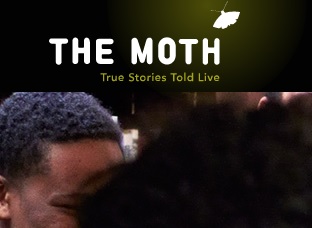Why journalists need to ask the obvious question
 One of this blog’s favourite journalists – David Walsh – gave a talk this week on the Moth Radio Hour – one of my favourite radio shows. A pretty perfect combination.
One of this blog’s favourite journalists – David Walsh – gave a talk this week on the Moth Radio Hour – one of my favourite radio shows. A pretty perfect combination.
For those that don’t know him, Walsh was the first journalist to raise, in print, suspicions of Lance Armstrong’s drug cheating. He was reviled by many, and ignored by most of the cycling world, but stuck to his guns. Ultimately, of course, Walsh was vindicated.
The point about the Moth Radio Hour, though, is that it is a place for personal reflection, with stories told by people from all walks: Walsh, in his quiet and faltering way, told a story as personal and moving as any I have heard on the show. It is a story from which all journalists could learn something.
Between his first Tour de France interview with Armstrong, and the athlete’s tour-winning return from cancer, Walsh’s son died. John was twelve years old and had, with tragic irony, been knocked off his bike. Walsh tells of arriving home and seeing the police cars, the neighbours, and the parish priest, and knowing that his life was about to change forever.
After the accident, Walsh began to collect memories from those who knew John, to stitch into some kind of picture of his son, and to keep John’s memory alive. Amongst many, one story from a primary school teacher stood out: the teacher had been reading the nativity story, complete with the three wise men and their gifts, explaining how Joseph was a carpenter and as a result Jesus had been raised in modest circumstances. Then the six-year old John raised his hand and asked a question:
“What did they do with the gold?” he asked.
To Walsh, and to John’s teacher (who had been reading the same story for 33 years and never been asked that question), it was a stunning question. The story changed something in Walsh, too. It gave him a new mantra: always ask the obvious question. It was the question he ultimately asked of Armstrong (is it possible to win your first Tour back from cancer without illegal help?) and it is the question that is too frequently neglected by us all.
It is easy to understand why journalists too often shy away from the obvious question. The obvious question is often superficially stupid. None of us want to look ignorant, so we follow the orthodoxy. As Walsh puts it: “People may laugh at you. People may think you are an idiot. But if you are unsure, you ask.” Often, it is that very lack of knowledge that leads to the obvious question.
Gillian Tett is widely credited with being the only Fleet Street journalist to predict the 2008 crash. By her own admission, this was not through any great wisdom, but precisely because she didn’t understand the orthodox view. So she kept asking the question that she kept failing to get a satisfactory answer to: is this credit bubble sustainable? It was the obvious question that almost no-one else was asking. It was the right question.
Tett’s example illustrates the fundamental principal of the obvious question: it does not have an agenda, and it requires the questioner to be open to whatever answer they might hear. It is the child’s endless ‘why?’ As irritating as that might be for the questioned, it serves a powerful purpose.
Trust in journalism – and journalists – is at an all time low. In a survey last year, the profession was ranked only above politicians in the public mind. The editor of the Daily Mail (responsible for the appalling ‘Enemies of the People’ headline) should note that judges were trusted by 80% of the respondents, with journalists coming in at 25%. I am convinced this is because newspapers in particular are increasingly following their own agendas rather than asking honest and open questions.
In the week that saw the death of Clare Hollingworth, the legendary journalist whose first scoop was the outbreak of World War Two, and in a month that will see the inauguration of Donald Trump, it is worth remembering what good journalism can do. And what bad journalism can deliver.